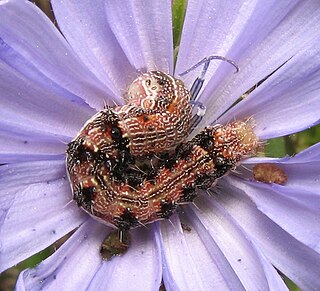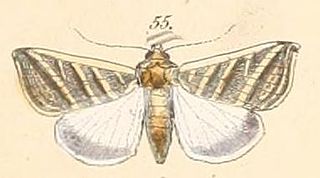
The lagomorphs are the members of the taxonomic order Lagomorpha, of which there are two living families: the Leporidae and the Ochotonidae (pikas). The name of the order is derived from the Ancient Greek lagos + morphē. There are 110 recent species of lagomorph of which 109 are extant, including 34 species of pika, 42 species of rabbit, and 33 species of hare.

Brandt's cormorant is a strictly marine bird of the cormorant family of seabirds that inhabits the Pacific coast of North America. It ranges, in the summer, from Alaska to the Gulf of California, but the population north of Vancouver Island migrates south during the winter. Its specific name, penicillatus is Latin for a painter's brush, in reference to white plumes on its neck and back during the early breeding season. The common name honors the German naturalist Johann Friedrich von Brandt of the Academy of Sciences at St. Petersburg, who described the species from specimens collected on expeditions to the Pacific during the early 19th century.

Heliothis is a genus of moths in the family Noctuidae. It was first described by Ferdinand Ochsenheimer in 1816. Some of the species have larvae which are agricultural pests on crop species such as tobacco, cotton, soybean and pigeon pea. Some species originally in this genus have been moved to other genera, see Chloridea and Helicoverpa.

The nuclear polyhedrosis virus (NPV), part of the family of baculoviruses, is a virus affecting insects, predominantly moths and butterflies. It has been used as a pesticide.

Xanthorhoe is a genus of moths of the family Geometridae described by Jacob Hübner in 1825.

Chloridea virescens, commonly known as the tobacco budworm, is a moth of the family Noctuidae found throughout the eastern and southwestern United States along with parts of Central America and South America.
Boursinia is a genus of moths of the family Noctuidae. The genus was described by Wilhelm Brandt in 1938, and the genus name honours Charles Boursin, who worked extensively on the family Noctuidae.

Chloridea is a genus of owlet moths in the family Noctuidae. There are at least three described species in Chloridea.
Mekrania is a genus of moths of the family Erebidae. The genus was erected by Wilhelm Brandt in 1941.

Polymixis is a genus of moths of the family Noctuidae.
Heliothis philbyi is a species of moth of the family Noctuidae. It is found in the Middle East, including Saudi Arabia, Iran and Oman.

Chloridea subflexa is a moth of the family Noctuidae first described by Achille Guenée in 1852. It is found from most of the United States, throughout the Antilles, and south to Argentina.

Chloridea tergemina is a species of moth of the family Noctuidae. It is found in South America, including Brazil.

Sclerodactylidae is a family of sea cucumbers, marine invertebrates with elongated bodies, leathery skins and tentacles.
Scopula gracilis is a moth of the family Geometridae. It is found in Iran, the United Arab Emirates and Oman.










